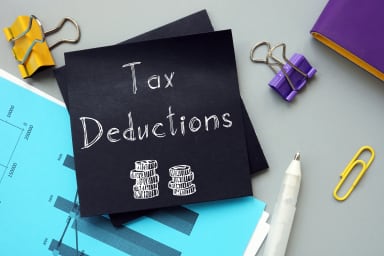Few things can consume more of a small business owner’s attention – and give her more frustration – than taxes. You want to do the right thing and pay what you owe, but you don’t want to pay more than absolutely necessary. The problem is that tax law can be rather complex, and many small business owners aren’t always terribly meticulous about keeping good records.
In fact, there are a number of relatively common tax time frustrations that, with a little bit of preparation, you can avoid:
Incomplete books.
Keeping your books up to date is a hassle. It’s boring. It doesn’t directly or immediately contribute to the bottom line. So, it’s the one task that many small business owners simply put off.
When it comes time to do your taxes, then, you’re looking at hours and hours of tedium as you enter every expense and sale. It’s a task that has to be done, and if you put it off until tax time you’ll be hurting.
In addition, waiting until tax time to do your bookkeeping can lead to error. You can miss certain expenses that you would otherwise have entered. You can wind up scrambling for records, or you can wrack your brain for hours trying to recall a given transaction.
It’s not particularly realistic to think that you’ll do bookkeeping daily. However, get into the habit of reviewing your books at least monthly. That will avoid tax time frustration, and it will reduce errors. It will also help you have a better feel for how your business is doing on a monthly basis.
Missing receipts.
This is another huge source of frustration for small businesses. You know you made a certain purchase; it’s listed right there in your accounting software. Yet, if you want to be able to deduct that purchase, the burden of proof is on you. You need to provide a receipt.
Shoeboxes are probably the worst place to keep receipts, yet many small businesses start off using this kind of tracking system.
Instead, consider converting receipts into electronic format. When you enter a receipt into your accounting package, scan it into your computer. Your accounting package should allow for storage of the receipt, attaching it to the transaction. It will save you time and frustration at tax time, and it may well save you money in the event of an audit.
Classifying deductions.
For some businesses, the difference between various types of expenses is clear. You have inventory, you have capital equipment, or you have operating expenses. Unfortunately, it’s hard to know the difference for certain types of items. Furniture and office equipment, for example, may be immediately deductible, or they may need to be depreciated.
The best way to get a handle on classifying deductions is at the point of purchase. When you make a purchase, do the legwork and figure out what category it goes into. Store the receipt and mark the transaction in your accounting software appropriately.
Calculating vehicle use.
If you have a personal car that you use for your business, you can claim the mileage. However, you need to have a mileage log that shows how much the vehicle was actually used for business.
Rather than trying to guess at the end of the year and create a log from scratch, track your mileage as you go. There are even smartphone apps that will calculate how much you’re traveling for business purposes, as well.
Overspending on an anticipated deduction.
Most deduction categories have limits. For example, you can write off gifts that you give to clients, but only up to $25. You need to know that before you send the client a new mini-fridge for her office. The same goes for business travel; there are daily limits that you can’t exceed when it comes to deducting them from your taxes.
Talk with a tax advisor early in the year and find out what these limitations are. Track each category as you go through the year, making sure that you’re not funneling money into a category that’s already been maxed out.
Tax time for small businesses doesn’t have to be a major headache. With just a little bit of preparation and forethought, you can greatly reduce your tax time frustrations. Talk to your tax expert today about each of these areas, and identify ways that you can better track your records and plan your overall tax strategies for the year.
SCORE is a nonprofit association dedicated to helping small businesses get off the ground, grow and achieve their goals through education and mentorship.
Tax Information and Resources






